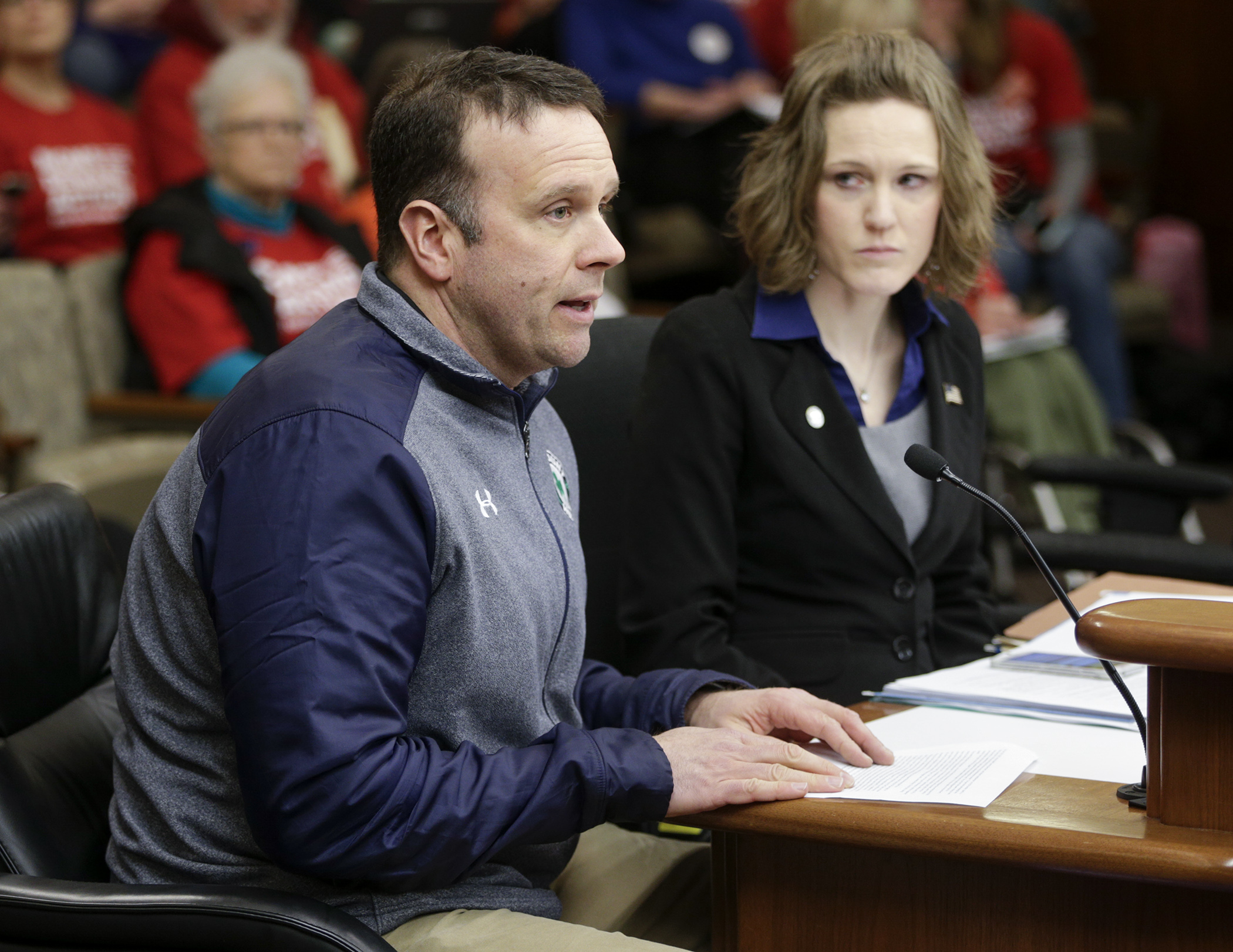‘Huffing’ and driving could be charged, penalized like a DWI

Clay Kendhammer lost his brother, Adam, last July to an impaired driver.
The deadly crash occurred 33 miles into Wisconsin along Interstate 94 when a driver crossed the median just before 5 p.m. and slammed head-on into a car carrying Adam and two others. All three died in the fiery crash.
The wrong-way driver did not.
Troopers found two air duster cans in and near the car driven by Serghei Kundilovski. Authorities believe — and blood tests show — he was “huffing,” using the aerosol to get a high.
Kundilovski was charged with nine felony counts, including first-degree reckless homicide. He pleaded guilty in December to three charges of homicide by intoxicated use of vehicle. He’ll likely spend decades in prison.
In Minnesota, Kundilovski could have been charged with just careless driving.
Last October, the Minnesota Supreme Court found in State v. Carson that the definition of “hazardous substance” in the state’s driving while impaired statute referenced a list used in rules related to occupational safety and health. Because the substance Carson inhaled was not on that list, she could not be charged with driving under the influence.
“Someone could be on Dust-Off, glues or bath salts and show higher signs of impairment than someone who is 0.08 yet the punishment is not the same,” said Shakopee Police Chief Jeff Tate.
Rep. Anna Wills (R-Rosemount) sponsors HF2766, as amended, which would ensure it is a crime to be in control of a motor vehicle while under the influence of an intoxicating substance.
The bill defines such an intoxicating substance as “a drug or chemical … that when introduced into the human body impairs the central nervous system or impairs the human audio, visual or mental processes.” It does not include alcohol or controlled substances, which have their own definitions.
It was held over Tuesday by the House Public Safety and Security Policy and Finance Committee for possible omnibus bill inclusion. Its companion, SF2479, sponsored by Sen. Greg Clausen (DFL-Apple Valley), awaits action by the Senate Judiciary and Public Safety Finance and Policy Committee.
“This bill is going to go a long way to assist law enforcement in removing impaired drivers from our road,” said Lt. Don Marose of the Minnesota State Patrol.
Related Articles
Search Session Daily
Advanced Search OptionsPriority Dailies
Ways and Means Committee OKs proposed $512 million supplemental budget on party-line vote
By Mike Cook Meeting more needs or fiscal irresponsibility is one way to sum up the differences among the two parties on a supplemental spending package a year after a $72 billion state budg...
Meeting more needs or fiscal irresponsibility is one way to sum up the differences among the two parties on a supplemental spending package a year after a $72 billion state budg...
Minnesota’s projected budget surplus balloons to $3.7 billion, but fiscal pressure still looms
By Rob Hubbard Just as Minnesota has experienced a warmer winter than usual, so has the state’s budget outlook warmed over the past few months.
On Thursday, Minnesota Management and Budget...
Just as Minnesota has experienced a warmer winter than usual, so has the state’s budget outlook warmed over the past few months.
On Thursday, Minnesota Management and Budget...